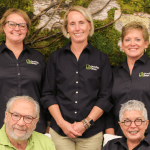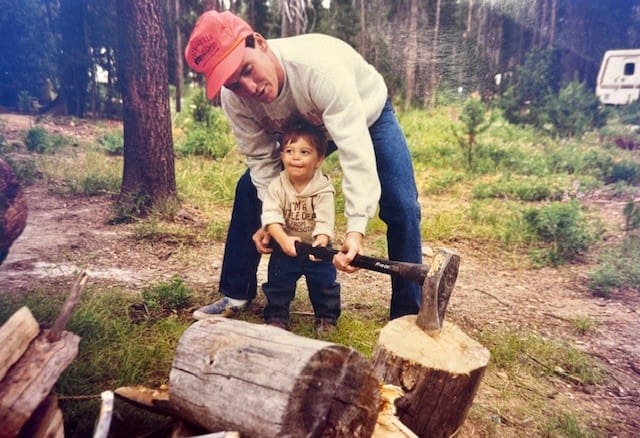
Bob Grover and his son David, have been working together at Pacific Landscape Management, based in Hillsboro, Oregon, since David graduated from high school.
While technically David had been working for the business before then, doing odds and ends, Bob was adamant his son not work for the business in earnest until he was in college.

Photo: Bob Grover
David would always ask when he could join a crew and Bob explained it would be really hard work and he needed to be older, more mature and more responsible because he would be treated like any other employee.
“He helped me realize if I’m the owner’s kid, that I’m probably going to have to work harder than anybody because there’s always going to be this stigma of, I’m privileged or nepotism,” David says.
Bob says his favorite thing about working with his son is sharing his passion and seeing how successful David has been in the industry.
David says working with Bob challenges him in a different way. He wants to do a good job for his boss and that desire is even stronger when his boss is his father.
“I want to make my boss proud,” David says. “I want to make my dad proud. I like to challenge myself. I like to work really hard on things and make a good product. To have that stronger sense of motivation, I feel fortunate. I feel like it allows me to goals that I maybe never thought was a potential thing for me.”
Setting Expectations
Bob says it’s okay to hope, but you shouldn’t expect or want your child to come into your business. He challenged David on why he wanted to join the business and made it clear it isn’t an easy industry.
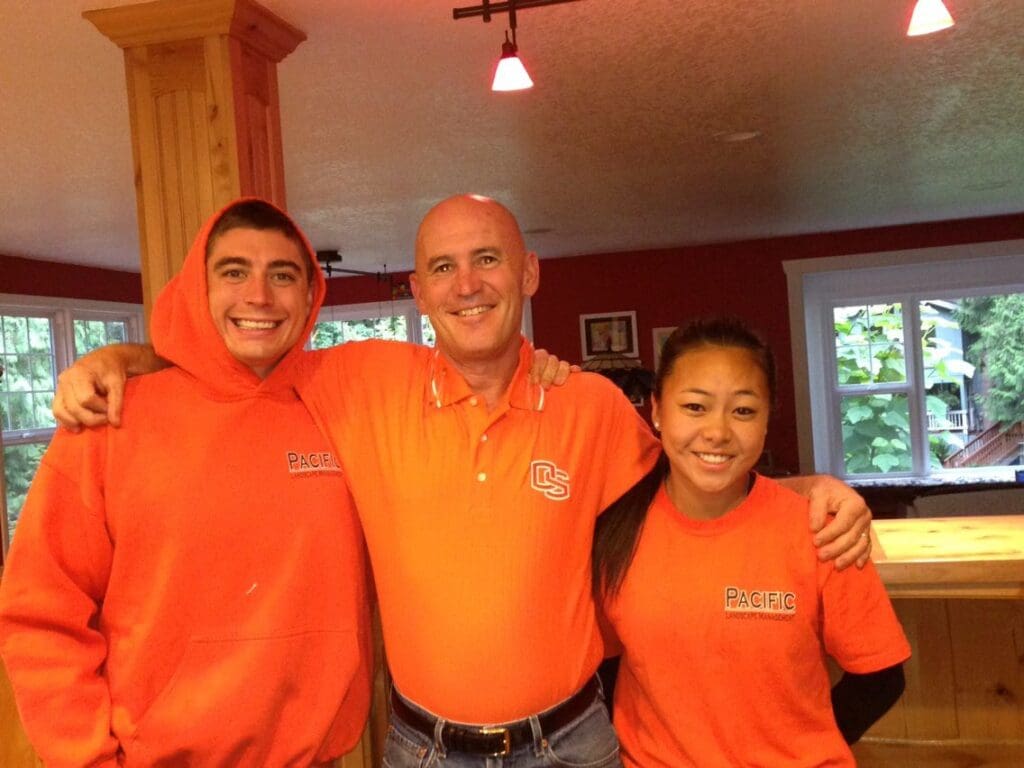
“First of all, as the parent, as the contractor, don’t want your son or daughter to come into your business,” Bob says. “Let them, don’t want them. The kid needs to choose their own passion and career.”
David says Bob helped him understand that he would have to work far harder to earn people’s respect and that he would receive no special treatment.
“Looking back, it was the best thing that set me up for my success,” David says. “Had I not earned people’s respect and had that perspective going into the family business and going into the industry, I wouldn’t be as successful today of feeling as if I’m just another member of the team, even though my last name matches the last name of the owner and the founder.”
Throughout college, he spent his summers on crews broadening his skills. David says starting out, the team was relatively open and wanted him to succeed, learn and grow. He was sure there was some skepticism, but he made it his personal goal to debunk any doubt in his abilities.
For instance, the crew’s start time was 6:30 a.m., so early on David would show up on time or a few minutes before that time, but he quickly realized the rest of the crew had the trailer loaded up and was ready to go by the time he arrived. David began showing up earlier so he could help load the machines and be ready to go at start time.
In his fourth year of college, David had the opportunity to step up and serve as a crew leader.
Bob says this came at a time when he had lined up David to work for another local landscape company for a period of time, and his team called and asked if David could take on the crew lead position.
“That was maybe one of my proudest moments,” Bob says. “Because he was being asked for. I wasn’t forcing him on my team.”
Work-Life Boundaries
From the start, Bob has been careful to set boundaries with David in the workplace, such as making an effort not to be David’s direct boss.
“I also told him early on if you see me at work, call me Bob,” he says. “Make sure it’s really clear. This is not dad. This is the boss.”
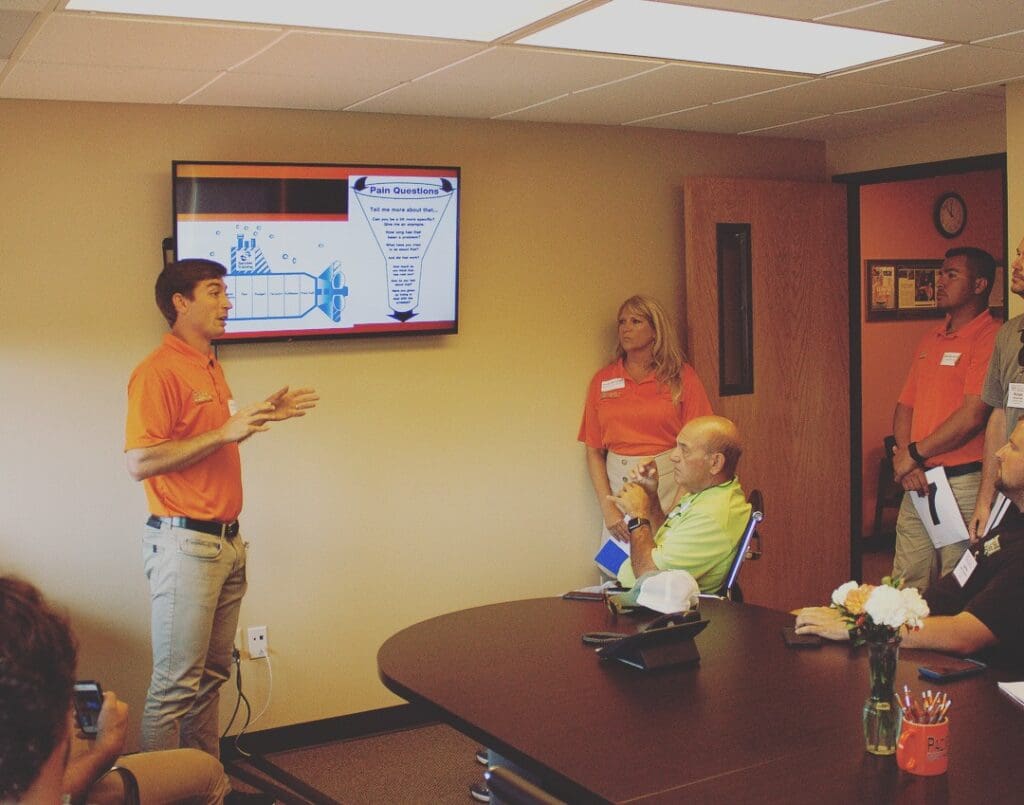
Bob says there have been a few times where lines got crossed and it was hard as a son or a father to deal with certain issues, but at the end of the day, he is the boss and makes the final decision. If they have different viewpoints on a matter, David can share his thoughts and Bob is open to listening and discussing.
David says he feels comfortable making his opinion known and understands Bob has 40 years of experience and is the decision-maker.
David notes that working with family can make it hard to separate work and family life. For instance, they could be hanging out for Memorial Day, having a barbecue and then a work topic comes up. He says this isn’t bad necessarily, but it’s important to have that balance and be able to disconnect and just focus on family.
“I’ve been more aware of that since having kids that if we’re hanging out together on the weekend with my parents as a family,” David says. “If we start talking about work, all of a sudden, I’m thinking about work again. I’m thinking about the week ahead. I’m thinking about the things that are stressing me out at work and all of a sudden, I’m not very present there with my family because I’m having these thoughts about work.”
David says they try to set boundaries and ask for permission before starting a conversation about work during family time. Bob agrees it’s a challenge to keep work discussions out of family time. They challenge each other to say if it’s going to be a longer conversation to save it for tomorrow.
Both of them have been cognizant of certain decisions being seen as nepotism and have worked hard to mitigate these beliefs.
When the branch manager position became open, Bob asked David if he was going to apply. David said he was planning to wait for the next opportunity. When Bob told his business partner, his partner said that David needed to apply.
“My dad never anointed me or told the team, ‘You have to put David in this position,’ it was always the team requesting it,” David says.
While David was competing against other internal applicants, they provided good feedback to the other candidates about why they weren’t selected and how to improve in the future. He says the other candidates all stayed with the company after he was selected for the role.
Outlook on the Future
While many parents who have children in the business hope to pass the company on to the second generation, Pacific Landscape has bypassed this exit strategy by going the private equity route.
Bob explains that when he and his business partner were considering options, they approached the branch managers about buying the business, but it ended up being a better fit to go with private equity. He adds that David is the youngest of the branch managers, and taking on a business at $50 million is a big place to start.
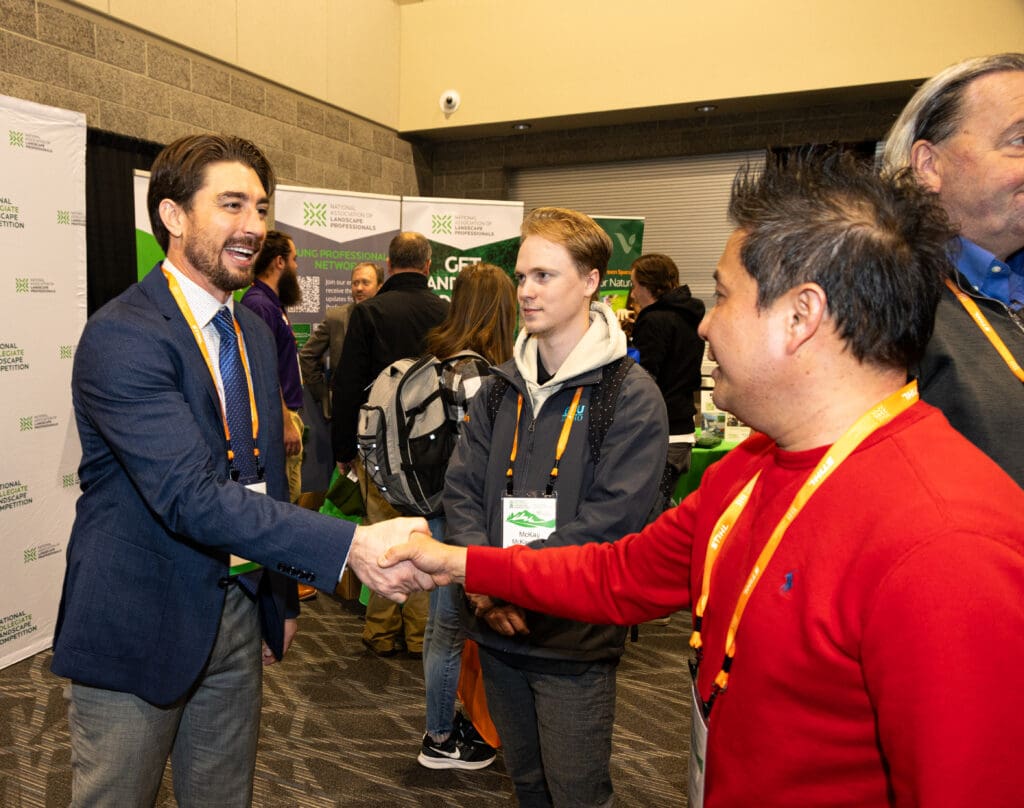
David says he’s interested in continuing to work his way up in the business and taking on higher levels of responsibility when the time is appropriate. As private equity continues to grow the company, David expects there will be opportunities to step into a divisional or regional manager position.
If he ever became the owner or has a higher level of responsibility in the company, David says he would balance how things have been done in the past with looking toward the future.
“I will always honor and respect how the business has been built up to this point,” David says. “I think there’s a lot of value in honoring that and understanding that and not wanting to just change things. I also believe that it’s important for any organization to have an open mind, to be willing to adopt new systems, to adopt new technologies, to think about things in a different way, to strategize differently, because the market changes.”
Advice for Others
If you’re a landscape company owner and have children, Bob encourages pushing them to find their own path. He made it clear he didn’t want David following in his footsteps just for his sake.
“He really challenged me to rethink what I wanted,” David says. “He was clear about you don’t have to come work in the business for my approval. You can do something else, and I will love you just as much. He really made sure that I was doing it for the right reasons.”
David encourages the second generation to have an attitude of being willing to show up and work harder as they will be under a magnifying glass. It will be harder to earn people’s respect.
If you do have children who want to join your business, it’s recommended they work for another company, even for a short period of time. David regrets, to a certain extent, that he never did an internship with another company, which his dad encouraged him to do.
“I think it is important to have a different experience, a different perspective outside of your family’s business,” David says.




